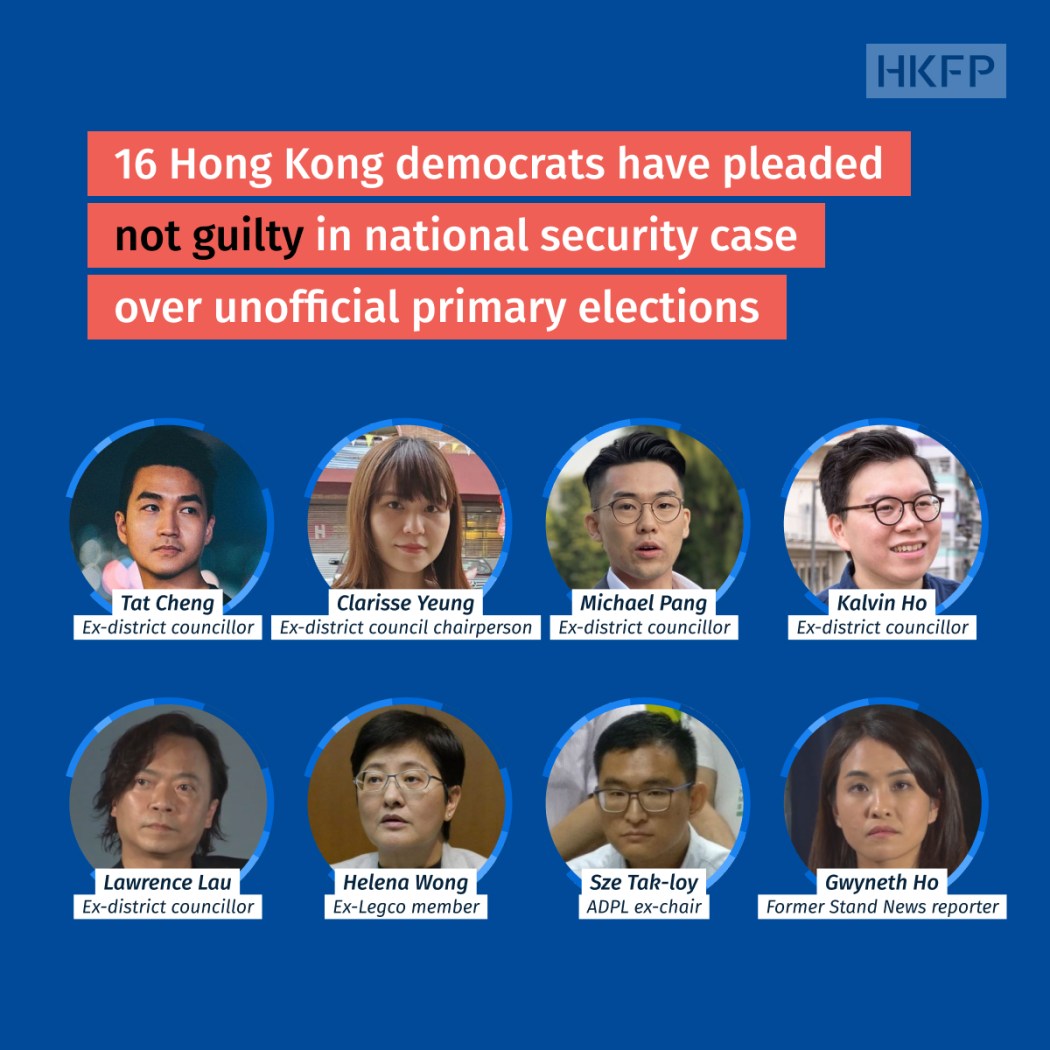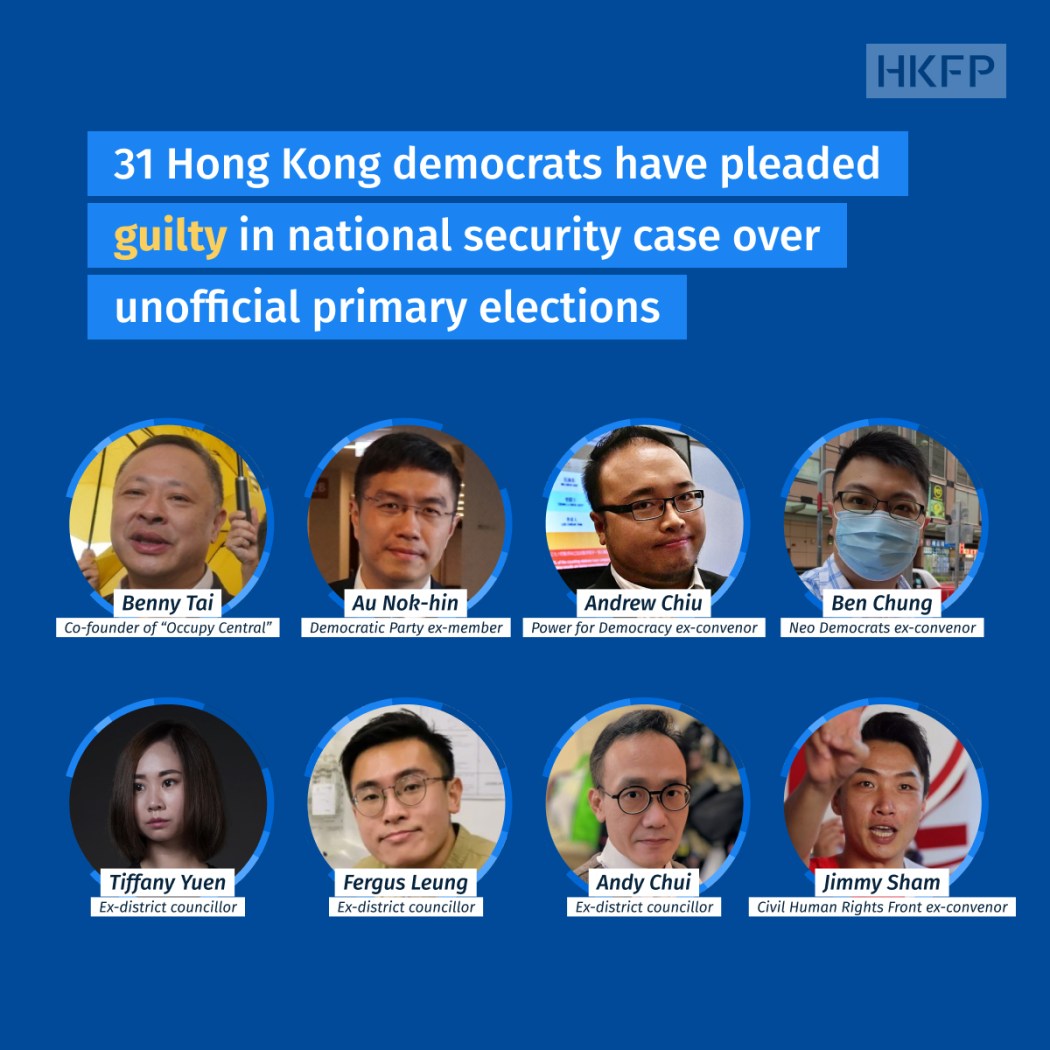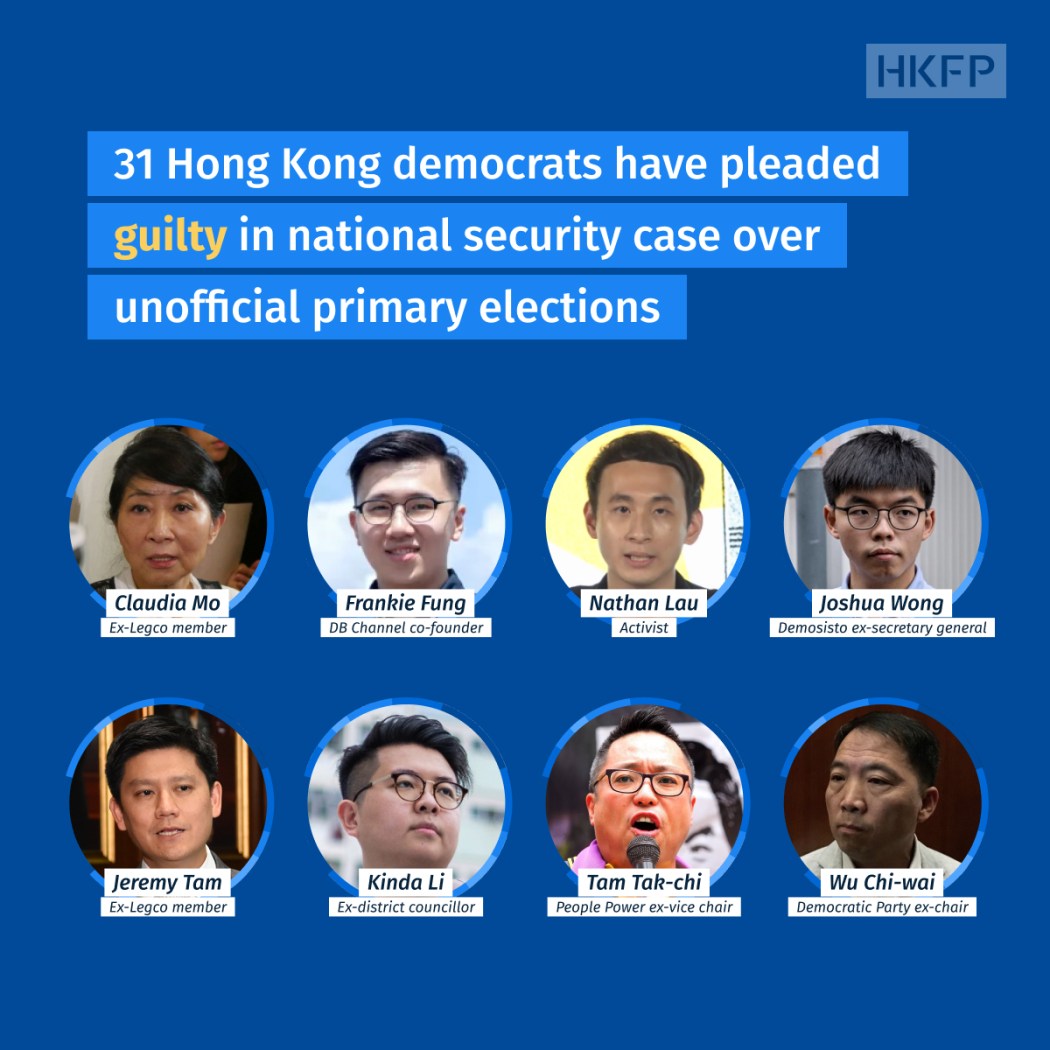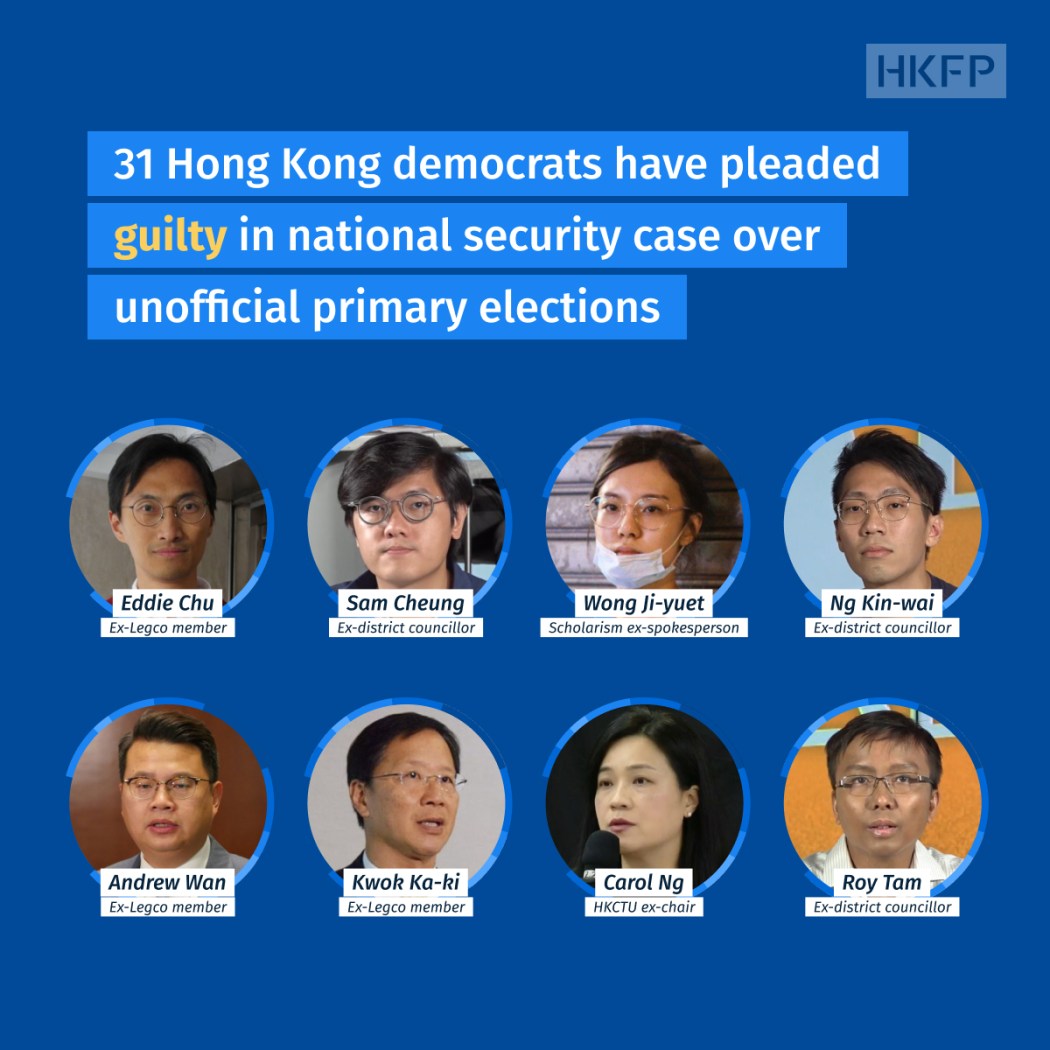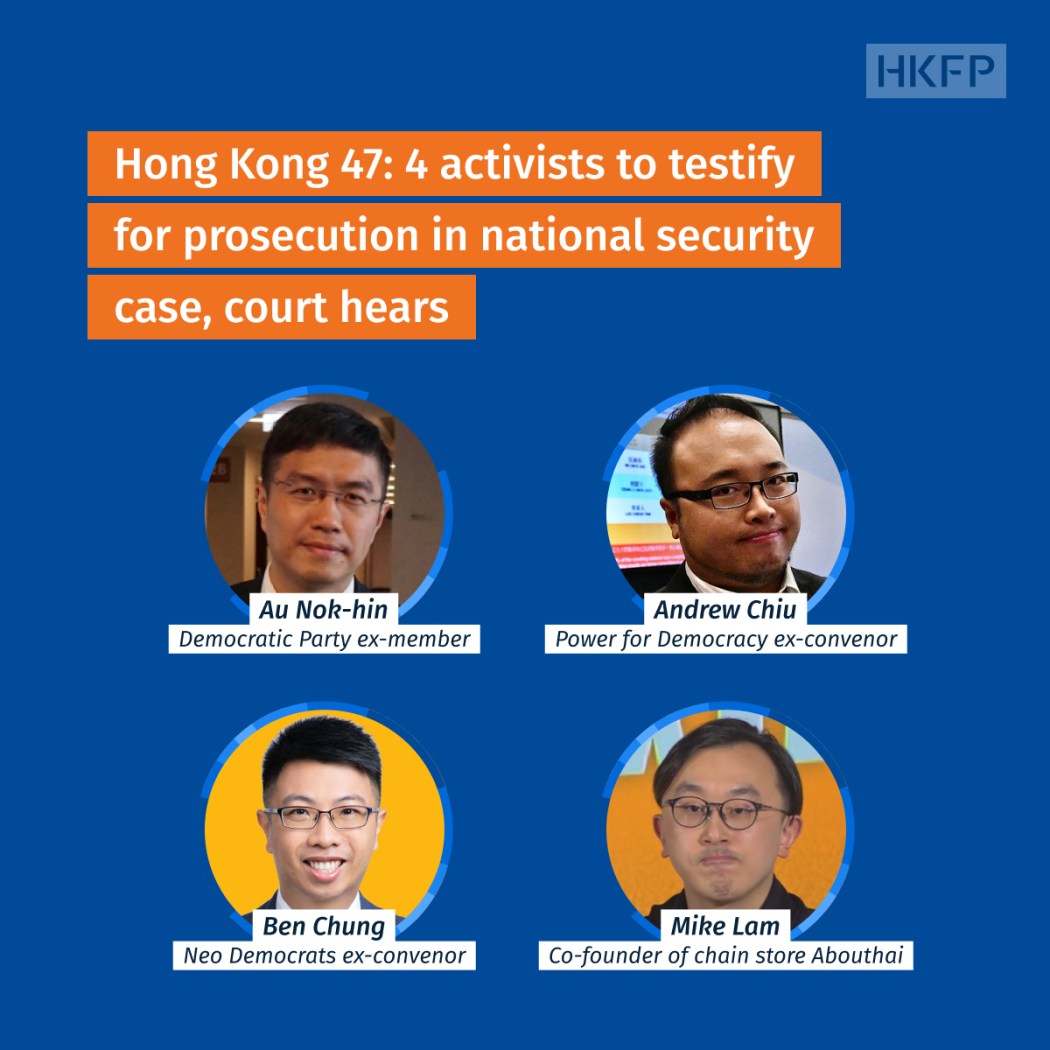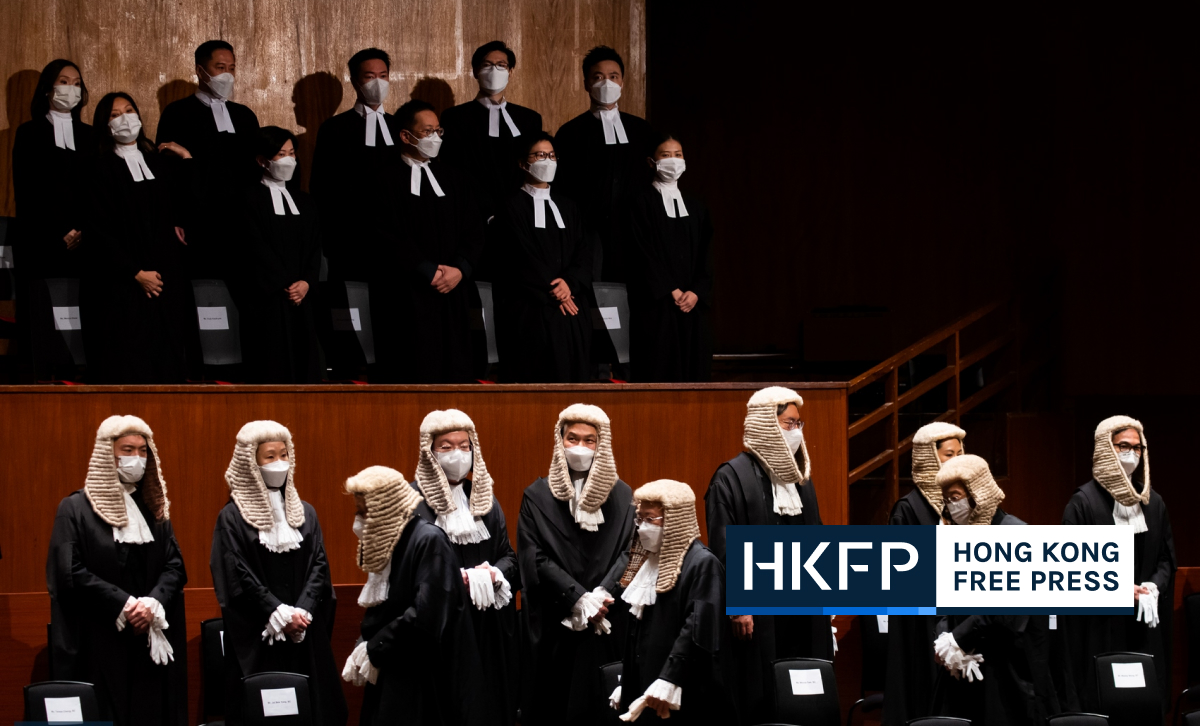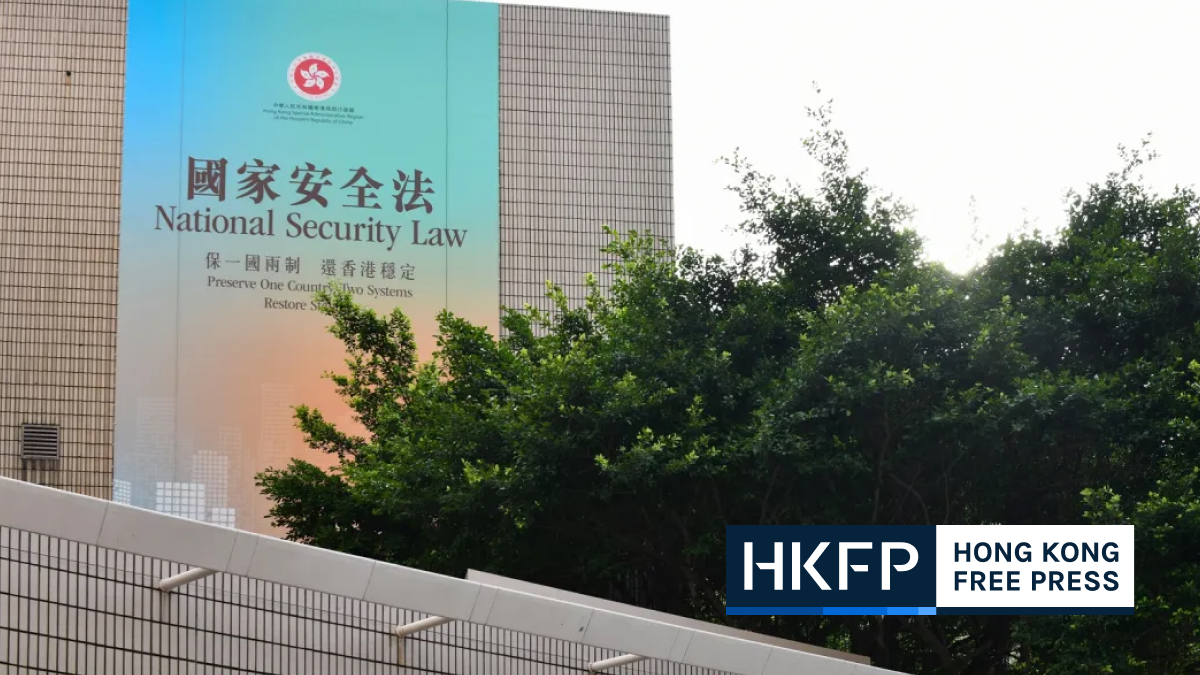One of the missions of the grassroots pro-democracy group Hong Kong Association for Democracy and People’s Livelihood (ADPL) was to uphold Chinese sovereignty, the organisation’s ex-chairman – one of the 47 democrats accused of conspiring to commit subversion – has said at a high-profile trial under the national security law.

Former ADPL chief Sze Tak-loy is a defendant in a landmark case centred around an unofficial legislative primary election held in July 2020. He took the witness stand on Monday as the lengthy trial entered its 82nd day.
The ex-Wong Tai Sin District Councillor is facing trial alongside 15 other prominent politicians and activists, after they denied the subversion charge which is punishable by up to life imprisonment.
Together with 31 other defendants who pleaded guilty earlier, the group stand accused of organising, or taking part in, a primary poll as part of a plan to seize majority control of the 70-seat legislature before the city’s electoral overhaul.
Prosecutors have alleged that the democrats intended to abuse their powers as lawmakers to indiscriminately vote down government bills, had their plan been carried out to fruition. They conspired to paralyse government operations, cause the chief executive to dissolve the Legislative Council, and ultimately force the city’s leader to resign, prosecutors allege.
Chinese sovereignty
Representing Sze, barrister Peter Wong asked the activist about his understanding of the principles of the grassroots organisation, which Sze joined as a staff member in 2005. He later became a member and moved up the ladder as the group’s chairman in 2016. He was elected as a district councillor on behalf of the group in 2015 and 2019.

Sze told the three designated national security judges that, when ADPL was founded in 1986, its mission was to uphold China’s sovereignty over Hong Kong and the principle of One Country, Two Systems. The political organisation also aimed to promote democracy and serve the grassroots community through pushing for a reallocation of resources, he said.
The group always focused on livelihood issues and it was his intention to bring voices which emphasised people’s livelihood into the legislature in 2020, Sze testified.
‘Political language’
Taking part in the primary poll and the official legislative election was a way to enhance publicity efforts and improve the image of the ADPL, Sze said when he was asked why he threw his hat in the ring for the Kowloon East geographical constituency primaries.
Although he estimated he had little chance of winning, as there were stronger candidates from the pro-democracy camp such as then-lawmaker Jeremy Tam and activist Tam Tak-chi, Sze said he still took part because he wanted to use it as a platform to push for livelihood policies, including an unemployment relief fund.
“A lot of the times, elections are chances for political parties to build their image,” Sze said. “[The ADPL] gave people the impression that it was sitting on the fence and weak.”
Judge Lee questioned whether the ADPL changed its stance as it sought to improve its image, and asked if the group’s “new image” was “simply a façade.”
The former ADPL chair said the group’s political stance remained unchanged, but he had to use “stronger language” during his campaign for the primary election. He admitted such language was “inconsistent” with the past approach of the ADPL when it handled political issues, as well as his personal stance.
Lee further grilled Sze on why he needed to employ “political language” in his campaign materials if his aim was only to draw attention to his policy suggestions. The activist said there would be no media coverage if he had appeared to have no chance of winning the poll.
Carrie Lam
Barrister Wong submitted that Sze had maintained a working relationship with the Hong Kong government and showed the court correspondence letters between his client and then-chief executive Carrie Lam relating to a redevelopment project in Sze’s district. Also displayed in court was a photo of Sze and Lam when the then-Hong Kong leader visited the Wong Tai Sin District Council days after she took office in July 2017.
Judge Alex Lee asked if Sze was willing to negotiate with the government on political matters. The judge also asked whether ADPL changed its stance regarding the upholding of Chinese sovereignty in 2020.

In response, Sze said he and his organisation was willing to negotiate, while their political stance remained the same.
Sze faced questions over whether he was satisfied with Lam’s governance, especially when the city saw its some of its worst political turmoil in 2019 over a since-axed extradition bill.
The activist said that he was not content with Lam’s handling of the unrest, but added that he was still willing to raise opinions on livelihood issues despite disputes over political matters.
Five demands
The court on Monday cast doubt on Sze after he said he believed that forcing the chief executive to respond to the five demands raised by protesters in 2019 could be seen as a “proper reason” for invoking lawmakers’ veto power conferred in the Basic Law.
Sze was shown a document shared by the democrats which stated that they agreed to “actively use” their constitutional powers, including voting down the budget. The activist said he believed the clause meant it was optional, but not mandatory.
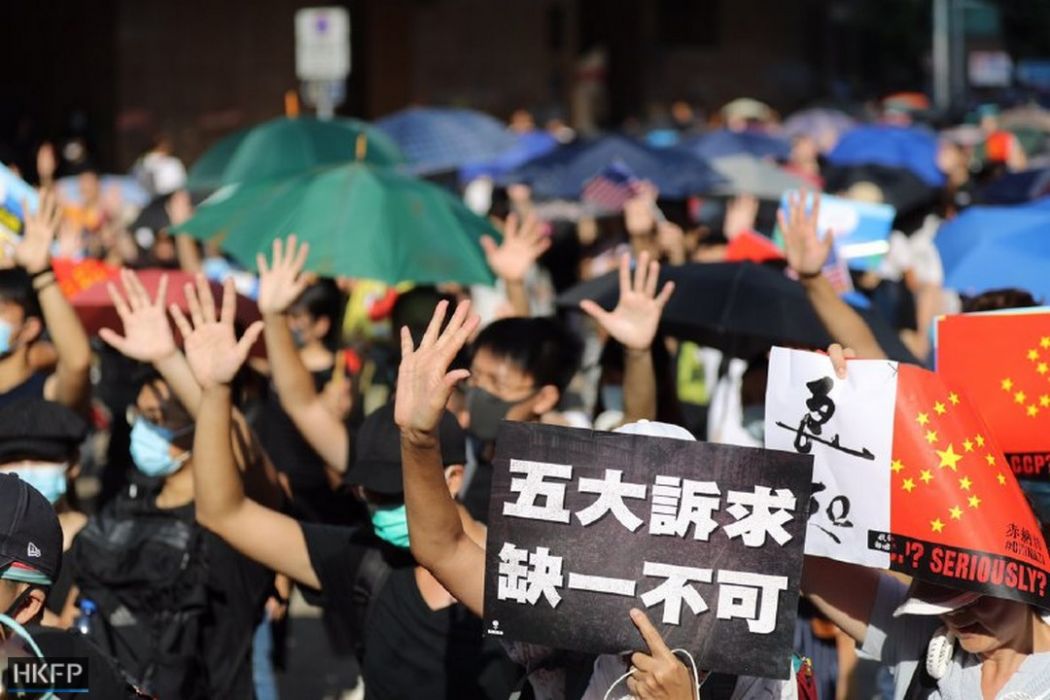
At the time, demonstrators demanded an independent probe into police conduct, amnesty for those arrested, a halt to the characterisation of protests as “riots” and full democracy.
Judge Andrew Chan asked Sze if he thought a legislator could veto the budget for whatever reasons or motives. He further grilled the activist on whether “improper motives” could justify the use of such powers.
Sze responded by saying that, if lawmakers wanted to invoke such powers, there must be a reason, and fighting for the five demands was one of them: “The five demands… I think it would be a proper reason within this power.”
“That’s your answer,” Chan responded.
Sze will continue his testimony on Tuesday.
In June 2020, Beijing inserted national security legislation directly into Hong Kong’s mini-constitution – bypassing the local legislature – following a year of pro-democracy protests and unrest. It criminalised subversion, secession, collusion with foreign forces and terrorist acts, which were broadly defined to include disruption to transport and other infrastructure. The move gave police sweeping new powers, alarming democrats, civil society groups and trade partners, as such laws have been used broadly to silence and punish dissidents in China. However, the authorities say it has restored stability and peace to the city.
Support HKFP | Policies & Ethics | Error/typo? | Contact Us | Newsletter | Transparency & Annual Report | Apps

